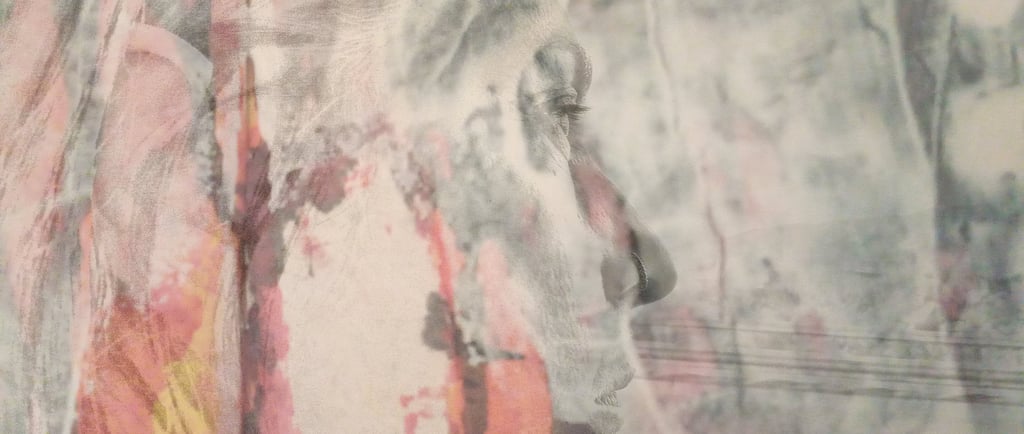When Exclusion Shapes the Soul: Migration, Silence & the Healing Journey
BELONGINGSTORYTELLINGCREATIVITY
11/3/20253 min read


Exploring how micro-exclusion in family or community can deepen our empathy, and how storytelling becomes the pathway to healing and identity.
There is a quiet haunting in exclusion. When we are set aside, silenced, made the “other” — even in our smallest circles — we sense that something within is stirred. I have been deeply contemplating how exclusion can lead not only to isolation but also to internalized dialogue: a voice within that asks: What can exclusion teach me about those suffering greater exclusion on a societal scale?
The Many Faces of Exclusion
Micro-level: Sometimes exclusion appears in the family home, the unspoken treatment, the sibling or cousin who withdraws without explanation.
Macro-level: At other times it’s entire communities: barred from systems, denied justice, overlooked access to food or water.
These layers of exclusion may seem disconnected, yet I realized that the micro-wounds made me more sensitive to the macro-wounds, how one person’s silence mirrors a society’s neglect.
The Inner Archive: Storytelling as Sanctuary
There came a time when silence itself began to speak to me. The silence of being misunderstood. The silence of being excluded from conversations I didn’t even know had happened.
That kind of silence carves deep, it questions our worth, our belonging, even our right to exist as we are. It mirrors loss: like mourning someone still alive. It leaves us standing before invisible doors that will not open.
And yet in that unbearable quiet, something else began to stir. Storytelling can become our sanctuary, the place where the unspoken could find breath. Writing allow us to translate silence into meaning. The page became a witness, a companion that never turned away.
Stories as Medicine
When I began to write, I asked myself: What exactly are the exclusions I have faced? What was the silent treatment teaching me? When I refused to rest, to speak up, what was I betraying within myself?
These questions were not gentle. They opened old wounds. They awakened rage, grief, longing, all the emotions that had been waiting in the quiet corners of my heart. But as painful as they were, they also became a portal to compassion.
Because through these processes, I began to see the deeper layers of those who had excluded me. Their own fears. Their own inherited silences.
Slowly, I learned to hold both truths: my pain and their humanity. Storytelling taught me that healing is not about erasing exclusion but about transforming its echoes into understanding. It is where the broken pieces of belonging can find their way back to light.
What Exclusion Revealed About Myself
Exclusion has been one of my greatest, if most painful, teachers. It arrived quietly, through silences, rejections, doors that would not open, and it stayed long enough to make me look inward.
It shines light on my own shadows.
It reveals the parts of me that once sought love through people pleasing, approval, the boundary-less self who believed that being kind, agreeable, and endlessly available was the path to safety.
But exclusion showed me something else: I saw how much of my life had been shaped by the desire to be accepted. How often I softened my voice, how often I swallowed my truth to keep the peace. How I internalized silence as a way of surviving.
Yet, paradoxically, being excluded freed me.
Through that process, I began to reclaim my own ground, my voice, my boundaries, my truth.
Exclusion became not only a wound but also a mirror, showing me what still needed healing and where I had abandoned myself. It reminded me that: When we know what it means to be left out, we become gentler with others who stand outside the circle.
It is in the moments of rupture that the soul expands, not when everything feels safe.
By naming our pain, we build pathways for others to cross their own silences.
And so, exclusion, for all its ache, became a form of initiation, a journey from pleasing to presence, from silence to self-voice.
It taught me that belonging begins within, and that the most profound homecoming is the one that happens inside the heart.
What This Means for Us
If you have felt exclusion, in family, workplace, community, nation, you carry a story worth telling.
It could help lessen the sense of isolation for someone else. It could make another’s suffering visible.
Perhaps through the small voice of you speaking, we build larger dialogues. A working archive of our shared humanity.
Your story matters — share your experiences of exclusion in our Online Archive, and join a collective journey of listening and understanding. How exclusion it shaped you? What boundary are you learning to set? Let’s create a chorus of voices that remembers and heals.